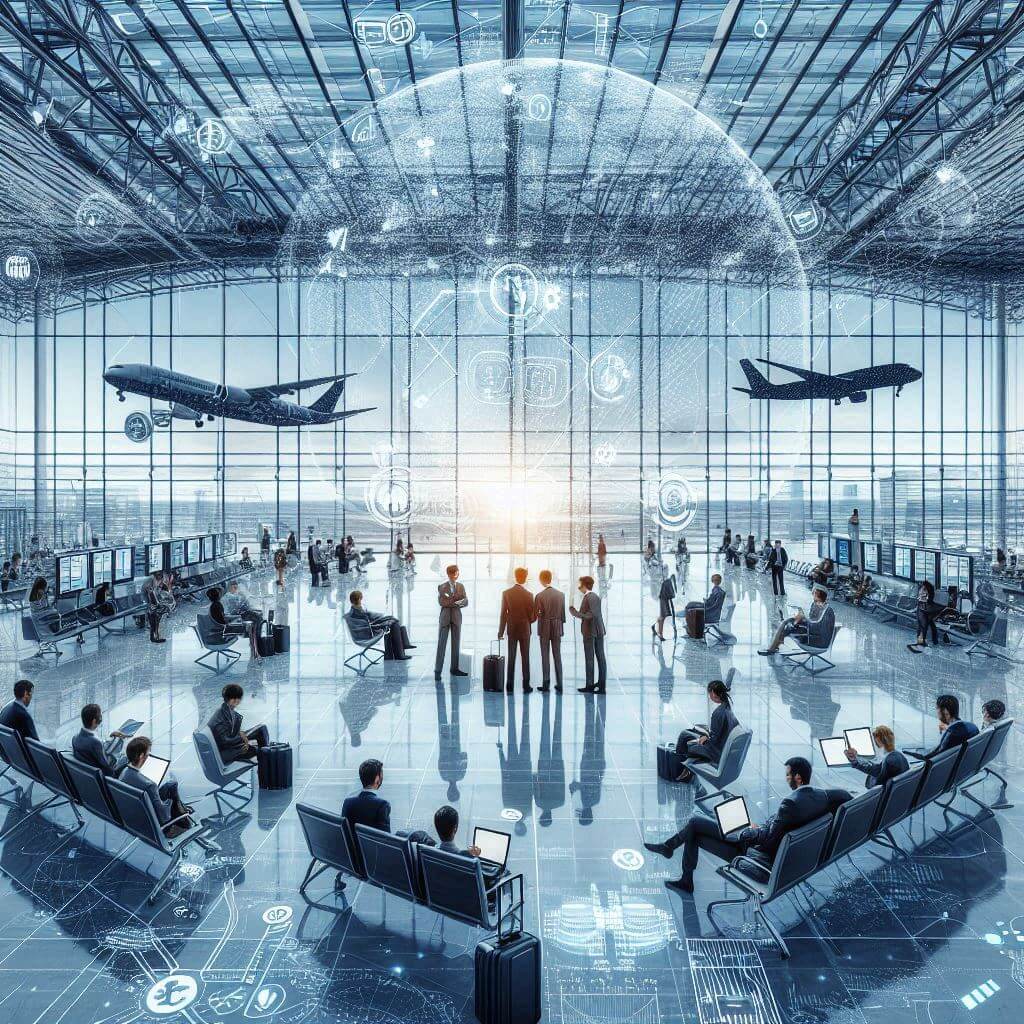Improving Aircraft Maintenance
M2M platforms enable real-time monitoring of aircraft systems through sensors that collect data on engine performance, fuel usage, and other critical parameters. This data is transmitted to ground-based systems for analysis. Predictive maintenance leverages this data to anticipate potential issues before they lead to failures, thus reducing unexpected downtime and maintenance costs.
By identifying problems early, airlines can schedule maintenance during planned downtimes, avoiding disruptions to flight schedules. This forward-thinking strategy increases the longevity of aircraft parts, boosts safety measures, and cuts down on operating expenses. It improves the overall reliability of the fleet, leading to higher customer satisfaction.
Enhancing Air Traffic Management
Air traffic management relies heavily on precise and timely communication between aircraft, control towers, and ground operations. M2M platforms facilitate this communication, ensuring that data is shared seamlessly across different systems. This enhances situational awareness and decision-making.
With real-time data on weather conditions, air traffic, and other variables, M2M platforms can help optimize flight paths. This reduces fuel consumption, minimizes delays, and enhances safety. Airlines can adjust routes dynamically, avoiding turbulence and other hazards, thus providing a smoother and more efficient flight experience.
Boosting In-Flight Services
Modern passengers expect uninterrupted connectivity during flights. M2M platforms support in-flight Wi-Fi and entertainment systems by ensuring continuous data flow between the aircraft and ground networks. This enhances the passenger experience, making air travel more enjoyable and productive.
By collecting data on passenger preferences and behaviors, airlines can offer personalized services. For example, cabin crew can receive real-time updates on passenger needs, such as meal preferences or special assistance requests. This level of personalization improves customer satisfaction and loyalty.
Streamlining Ground Operations
Baggage handling is a complex process that involves multiple stages and systems. M2M platforms streamline this process by enabling real-time tracking of baggage throughout its journey. This reduces the likelihood of lost or delayed luggage, enhancing the overall passenger experience.
Airports are intricate ecosystems with numerous moving parts. M2M platforms facilitate efficient coordination of various operations, such as gate assignments, ground services, and security checks. Real-time data ensures that airport operations run smoothly, reducing delays and improving overall efficiency.
Enhancing Safety and Compliance
Safety is paramount in aviation. M2M platforms provide continuous monitoring of critical systems, ensuring that any anomalies are detected and addressed promptly. Automated reporting and data logging help airlines maintain compliance with regulatory standards, avoiding penalties and ensuring the highest safety levels.
In the event of an emergency, M2M platforms provide real-time data to support decision-making. This includes information on aircraft location, system status, and environmental conditions. Quick access to accurate data enhances the effectiveness of emergency response efforts, potentially saving lives.
Fuel Efficiency and Environmental Impact
Fuel is a significant cost factor for airlines. M2M platforms help optimize fuel usage by monitoring and analyzing flight performance. By adjusting flight paths, speeds, and altitudes in real-time, airlines can reduce fuel consumption and lower operational costs.
Environmental sustainability is a growing concern in the aviation industry. M2M platforms contribute to reducing the carbon footprint by optimizing fuel efficiency and improving overall operational efficiency. This aligns with regulatory requirements and public expectations.
Enhancing Security Measures
Security is a critical aspect of aviation operations. M2M platforms support real-time surveillance of aircraft and airport facilities. This includes monitoring access points, securing perimeters, and detecting any unusual activities. Enhanced surveillance capabilities improve overall security and protect against potential threats.
With the increasing reliance on digital systems, protecting sensitive data is crucial. M2M platforms incorporate advanced encryption and security protocols to safeguard data against cyber threats. This ensures that communication between systems remains secure and that sensitive information is protected.
Supporting Fleet Management
Managing a fleet of aircraft requires coordinated efforts and real-time data. M2M platforms provide a centralized control system that integrates data from various sources, allowing fleet managers to monitor and manage their aircraft effectively. This includes tracking aircraft status, maintenance schedules, and operational performance.
By optimizing various aspects of fleet management, M2M platforms help reduce operational costs. This includes minimizing downtime through predictive maintenance, optimizing fuel usage, and improving overall efficiency. Cost-effective operations enable airlines to remain competitive and profitable.
Facilitating Regulatory Compliance
Regulatory compliance is necessary in the highly regulated aviation industry. M2M platforms automate compliance monitoring by continuously collecting and analyzing data related to safety, maintenance, and operational standards. This ensures that airlines adhere to regulations and avoid costly penalties.
Audits are a regular part of aviation operations. M2M platforms simplify the audit process by providing comprehensive and easily accessible records. Automated data logging and reporting streamline the preparation and conduct of audits, reducing administrative burdens and ensuring compliance.
Future Trends in M2M Aviation Platforms
The future of M2M platforms in aviation includes integration with artificial intelligence (AI) and machine learning. These technologies enhance data analysis capabilities, providing deeper insights and more accurate predictions. AI-driven platforms can optimize flight operations, maintenance schedules, and passenger services more effectively.
The Internet of Things (IoT) continues to expand in the aviation industry. More devices and systems will be connected, generating vast amounts of data. M2M platforms will play a main role in managing this data, ensuring seamless integration and communication across the IoT ecosystem.
As M2M technology advances, the passenger experience will continue to improve. Enhanced connectivity, personalized services, and real-time information will make air travel more comfortable and convenient. M2M platforms will enable airlines to meet and exceed passenger expectations.
Sustainability will remain a key focus in aviation. M2M platforms will support sustainable practices by optimizing fuel efficiency, reducing emissions, and improving operational efficiency. These efforts will help the aviation industry meet environmental goals and reduce its carbon footprint.
